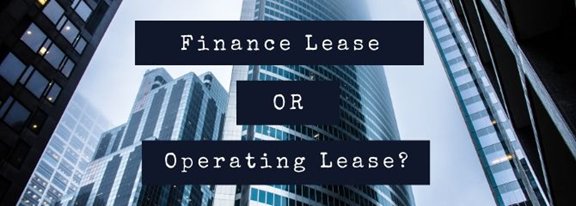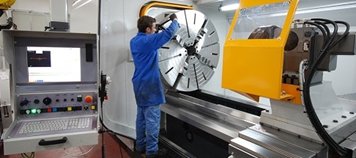
Discover the benefits of leasing and financing equipment.
Financing solutions allow you to have the latest equipment working for your business. Partner with a team ready to help you structure solutions that meet your business objectives.
Preserve liquidity to maintain financial flexibility
Conserve cash to create additional opportunities, and structure payments to minimize cash outlay with up to 100% financing.
Capital or operating lease?
Deciphering the legalese of equipment finance
What type of lease makes the most sense for financing equipment? Learn the legal language behind each major financing path.
You decided to lease equipment – great!
Now it’s time to sift through the common terms on lease agreements, and figure out which type of lease is best for your business. Here’s a quick primer on the types of equipment leases, and how they’re commonly used:

Capital leases
Capital leases meet one or more of the following criteria and are classified as purchases by the lessee:
- The lease term is greater than 75 percent of the property’s estimated economic life.
- The lease contains an option to purchase the property for less than fair market value.
- Ownership of the property is transferred to the lessee at the end of the lease term.
- The present value of the lease payments exceeds 90 percent of the fair market value of the property.
Riley Thompson, vice president of Equipment Finance at U.S. Bank, notes that the accounting process has “changed significantly in the past 10-15 years, due to technological and security advancements.” The advent of cloud computing is a recent example, as cloud companies take advantage of newer accounting processes that separate the cloud service itself from any necessary on-premises equipment.
Operating leases
Operating leases are any leases that are not capital leases. Organizations generally use them for short-term equipment leasing. The lessee can acquire the use of equipment for just a fraction of the useful life of the asset, and the lessor may provide additional services such as maintenance and insurance.
Why would I choose an operating lease?
If you do not want to own your equipment, or are simply looking for a short-term “right-to-use” agreement, than an operating lease might make more sense. Since you don’t assume ownership of the financed equipment, you aren’t liable for maintenance or insurance costs.
Operating leases allow for more flexibility in upgrading or replacing equipment, especially to keep pace with a 3-5 year lifespan.
Operating lease accounting processes may be simpler, since lease payments are considered operating expenses.
What do I need to know before signing an operating lease?
Since you don’t own the equipment, you wouldn’t get any benefits from asset ownership, including tax depreciation.
While you can’t purchase the equipment outright during an operating lease, some lessors might offer a purchase option at the end of the lease.
On a lease renewal, the payments should be lower than the initial payments – and when you enter into an operating lease, your company should always have the option of returning the equipment.
Changes in the accounting process aren’t reflected in most operating leases, since they are still primarily about “managing cash flow and obsolescence.”
As you determine how to refresh your equipment, choosing the right type of lease is vital to achieving your short-term and long-term business goals. Wherever you are in the discussion, we’re here to help you get the most effective technology solution.
Contact a for more information.
Adrian LeBlanc
937-510-8160
adrian.leblanc@usbank.com
